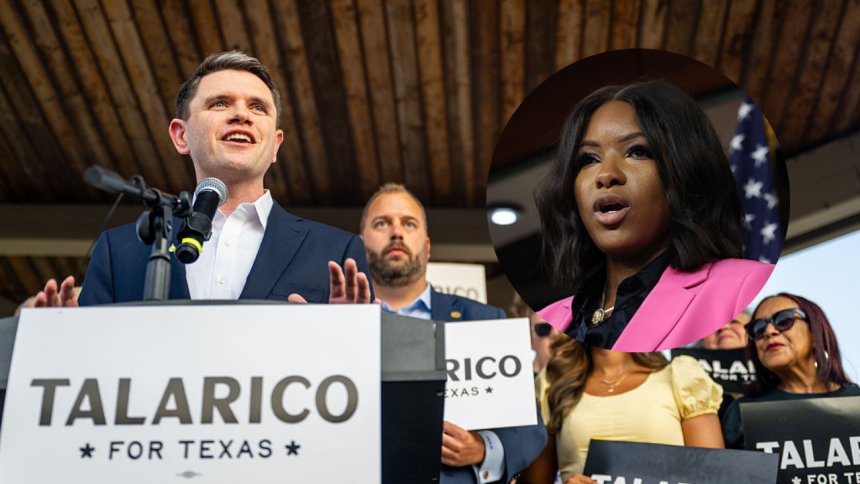60 years after ‘Bloody Sunday,’ leaders say voting rights and racial equality have declined
Six decades later, Black leaders are grappling with progress being undone by a series of court rulings, state laws, and […]

Six decades later, Black leaders are grappling with progress being undone by a series of court rulings, state laws, and Donald Trump’s targeting of racial equity.
Civil rights leaders and elected officials commemorated on Friday the 60th anniversary of “Bloody Sunday,” the day voting and civil rights activists were violently beaten and injured by law enforcement officers on the Edmund Pettus Bridge in Selma, Alabama while protesting the right to vote for Black Americans in the Jim Crow South. The bloody images of that day shared around the world helped to contribute to the larger movement’s achievement of the Voting Rights Act of 1965, marking a pivotal turning point for racial equality in the United States.
However, six decades later, Black leaders are grappling with the reality that some of the progress made over the years has been undone by a series of court rulings, subsequent restrictive state laws, and now the return to power of Donald Trump, who has used his presidential authority to topple racial equity programs and civil rights protections.
U.S. Rep. Terri Sewell, who represents Alabama’s 7th Congressional District–where the 1965 Selma to Montgomery march took place–described the current state of voting rights and racial equality as a “perilous time in our democracy.”
“Sadly, we know that the values that guided John Lewis and those foot soldiers across the Edmund Pettus Bridge are under assault,” Sewell said on Wednesday during a press conference announcing the reintroduction of the John R. Lewis Voting Rights Advancement Act. The legislation, named after former U.S. Rep. John Lewis, who led the march and nearly lost his life, would restore protections to the Voting Rights Act after the U.S. Supreme Court gutted key provisions intended to safeguard racial discrimination in voting.
“Seemingly every day, we see new efforts to roll back our hard-fought progress, efforts to whitewash our history, and yes, efforts to make it harder for Americans to vote…,” said Congresswoman Sewell. 
According to the Brennan Center for Justice, after the Supreme Court’s striking down of “preclearance,” which required states to get federal approval before passing new voting laws to ensure they were not racially discriminatory, at least 29 states passed nearly 100 restrictive voting laws. In Georgia, volunteers were legally barred from handing out food and water. Several other states have required voters to present IDs or have banned easy methods of voting like mail-in voting–something experts and advocates say is specifically designed to suppress Black and brown voters.
“While these new laws may not make us count how many marbles are in a jar, I have to say that modern-day efforts and modern-day barriers to voting are no less pernicious than those poll tax and literacy tests of the past,” said Congresswoman Sewell.
Data shows a correlation between the rise of restrictive voting laws and racial voting patterns. The Brennan Center concluded that the gap in turnout rates between white voters and Black and brown voters has steadily widened over the years. In 2024, the organization found that states enacted more such laws than in any year in the last decade except for 2021–the year after the historic election of President Joe Biden and Vice President Kamala Harris.
For years, Democrats have tried to pass the John Lewis Act and the Freedom to Vote Act, which would expand voting access for formerly incarcerated individuals and make Election Day a federal holiday, among other actions. However, without the needed votes from Republicans, particularly in the U.S. Senate, the bills have repeatedly failed in Congress.
Now, Democrats and advocates are left to also combat actions taken by the Trump administration that would undo efforts to protect the civil rights of Black and brown Americans, including the elimination of diversity, equity, and inclusion programs throughout the federal government.
The Leadership Conference on Civil and Human Rights released a memo on Harmeet Dhillon, President Trump’s nominee for assistant attorney general for civil rights at the Department of Justice. The memo details Dhillon’s anti-voting rights record and her support of “reverse racism.”
“In the same way our ancestors persisted, we must persist today in our fight against those determined to turn back not only the progress of the past decades but the very notion that everyone deserves the right to thrive in this country,” said Glenn Harris, president of Race Forward. “While our struggle may look different from that of our ancestors, make no mistake that we are indeed in the same struggle.”
Harris added, “The good news is that the fight of our ancestors shows us how to organize and prepare for this moment. We have the persistence, stamina, and hope needed to continue our righteous organizing for justice.”
Jamarr Brown, executive director of Color of Change PAC, told theGrio that in the months and years ahead under the control of Trump and Republicans in Washington, Democrats must ensure they continue “standing with their base”– Black and brown voters — who “put them into office.” He continued, “Whether it’s restricting civil rights protection, whether it’s even just breaking and dismantling government that provides services to Black people and Black communities.”
“We know the damage that the Republicans will do. We know that the Republicans will not stand up to Donald Trump,” added Brown, “and so it is up to us to make sure that we’re standing up to Donald Trump and standing up to Republicans in Congress and Republicans across the country who will also be working to implement Donald Trump’s agenda.”
Share
What's Your Reaction?
 Like
0
Like
0
 Dislike
0
Dislike
0
 Love
0
Love
0
 Funny
0
Funny
0
 Angry
0
Angry
0
 Sad
0
Sad
0
 Wow
0
Wow
0


















